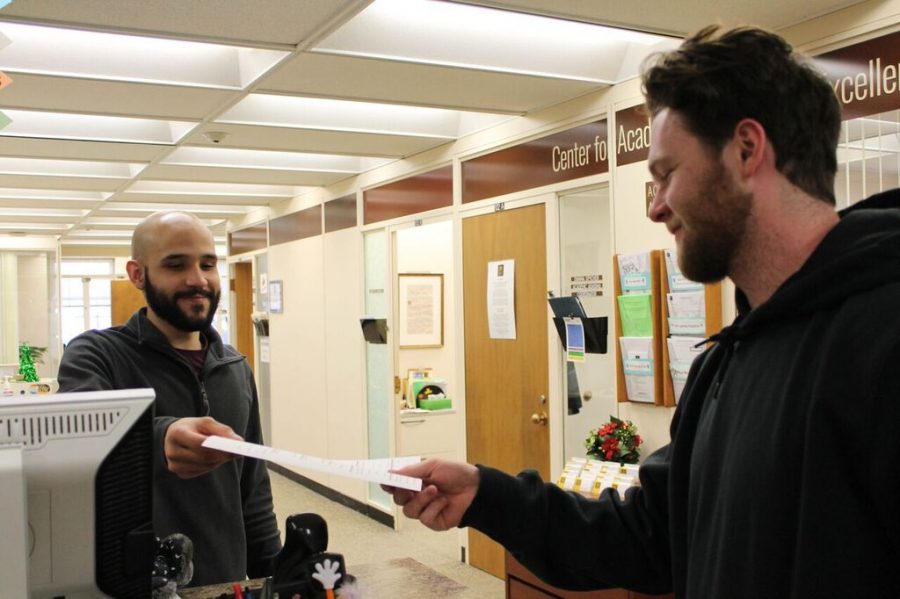Many may make major changes
W attempts to guide students when switching majors — something 30 percent of students nationwide do
As the semester draws to a close, the offices of Career Services and Academic Advising will begin wrapping up their files for the Fall 2017 semester.
Among these files are the records of the students that have decided to change or declare their major over the past semester.
As of the week before Thanksgiving break, this number hovered just under 300 recorded changes to majors, or about 8 percent of the total student body. This semester is slightly higher compared with the roughly 250 recorded major changes, or nearly 7 percent, for the Spring 2017 semester.
Despite some practical issues or negative connotations associated with changing majors, it is actually fairly common, at BW and around the country. According to the US Department of Education, nearly 30 percent of undergraduate students nationwide change their major at least once during their time of study.
But the move isn’t always met with confidence and ambition, but rather may be met with a complex concoction of pressures.
Primarily, these begin before the student even arrives at the university.
“Parents have a lot to do with, at least, the major that students come in with,” Dianna Spycher, academic advising coordinator said, “I’m pretty candid to say that a student’s first major is usually the major that their parents want.”
Furthermore, according to “The seven myths to choosing a college major” published by the New York Times, new students may select from majors based upon the illusory connections to future financial security.
Still, other students may have a clear idea of what they wish to pursue as a career, but then progressively decide that that path is not really for them.
Once involved in undergraduate studies, Katie Flanigan, a career advisor in Career Services, said that students may feel like they are then boxed into a particular area.
Further complicating the decisions and adding stressors to students is the mandarin that some institutions place on the time limit for declaring a major.
“We don’t have a standard written policy by which you should have a declared major,” Spycher said, “[but] it’s best if [students] have one declared by the end of sophomore year.”
To facilitate students who remain undecided toward a major, or those that are looking to switch, the offices of Career Services and Academic Advising maintain various programs to aid in the transitionary processes.
The first step may not even deal with choosing majors, but rather facilitating a discussion regarding the purpose of a major and the shifting demands of the employment market.
“What I like to say to students is: it’s really less about what you’re major is, because 10 years down the road you are probably not going to be working in the field in which you major. It’s more about what skills you are collecting while you’re here, while studying a topic that you really really like. If history is your thing, then you can come here and be… good at studying history, while also learning how to communicate effectively… [and] how to conduct really good research. Down the road, those are the skills that you’re going to need to sell to be able to sell to a future employer,” Spycher said.
As for the literal processes, Flanigan explained that Career Services offers one-on-one counseling for students interested in declaring or changing their majors, hosts presentations throughout the year to facilitate larger audiences, and plans to begin new involvement initiatives at their offices.
One of these is the new Career Communities, which as Flanigan explained, is an attempt at breaking the notion that only students who major in a particular subject can work in a particular field.
In late December, Flanigan said that Career Services will be hosting another Career Communities focused on the Healthcare field, with more information still forthcoming regarding that particular event.
Aside from meeting in the offices of Career Services or Academic Advising, students determining to declare or change their major are encouraged to utilize networking sites like: BW’s new partnership with Handshake; personality determinants like MyPlan.com, for which BW maintains a membership for all students to take free assessments; and even meet with the faculty of a department a student is interested in, and perhaps sit in on a class or two in that major.
But first and foremost is the necessary step in relinquishing the stigma attached to changing a major or remaining undecided for the first few portions of one’s undergraduate career.
The Exponent is looking for financial contributions to support our staff and our newsroom in producing high-quality, well-reported and accurate journalism. Thank you for taking the time to consider supporting our student journalists.











































